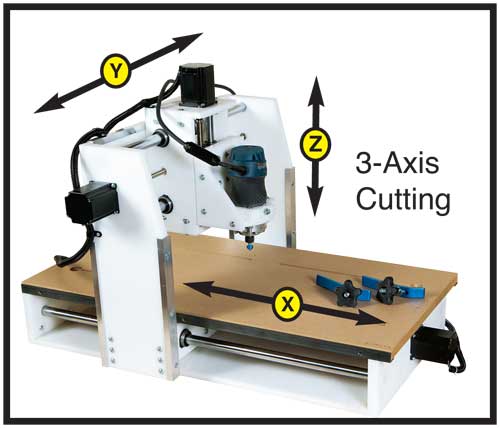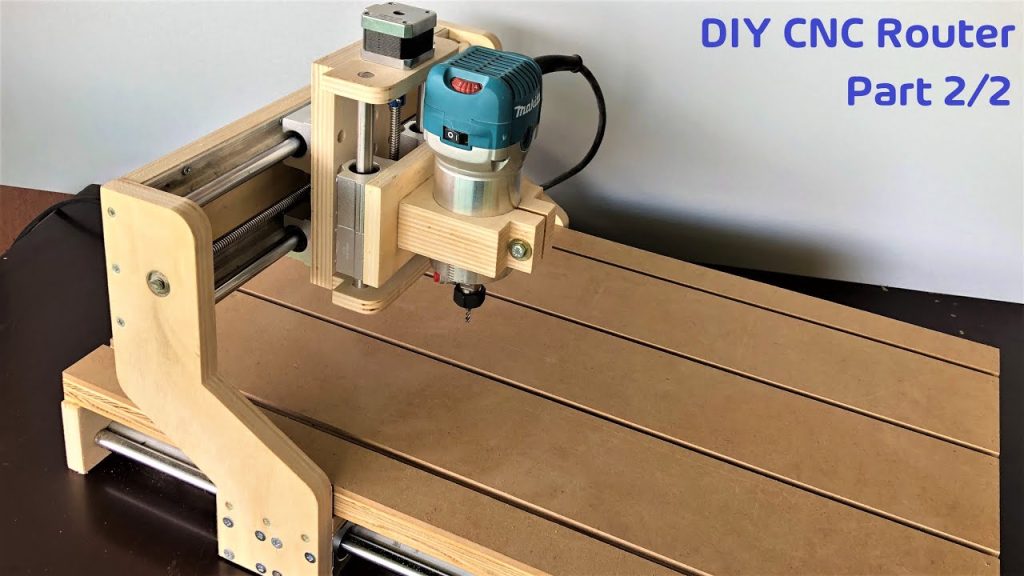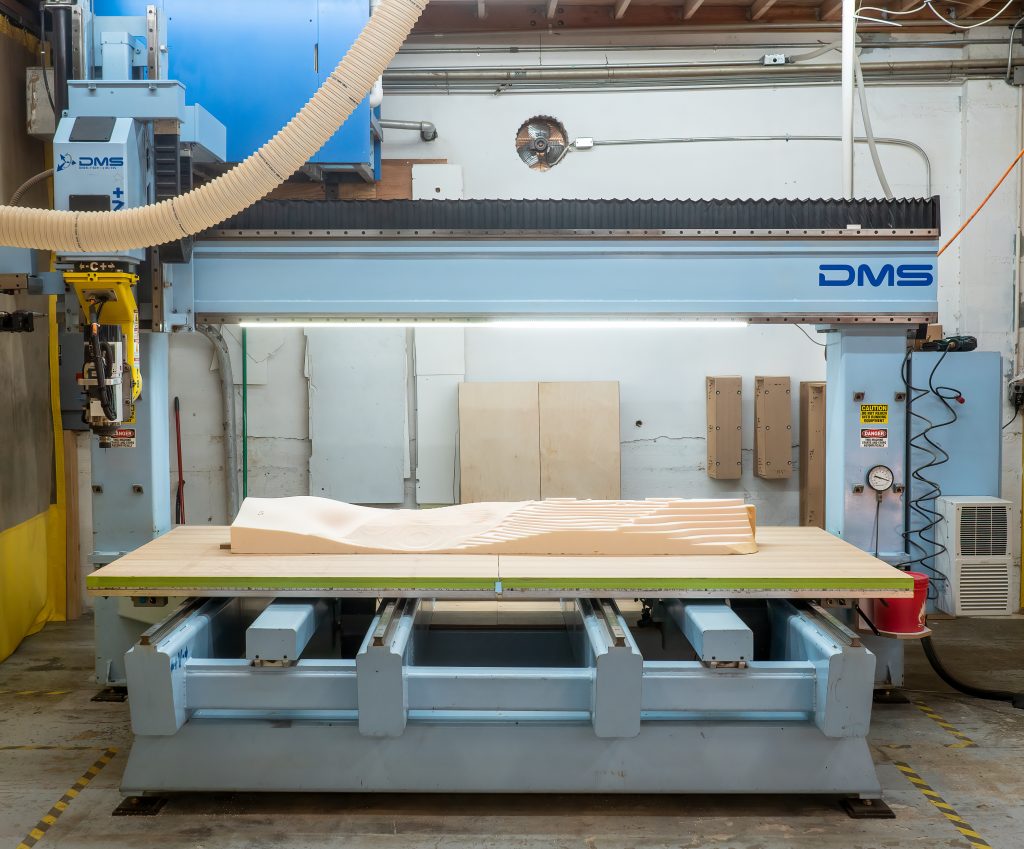Table of Contents
CNC routers are becoming increasingly popular in the manufacturing industry, but can they carve metal? This question has been on the minds of many manufacturers looking for a more efficient way to create intricate metal designs. In this article, we will explore the capabilities of CNC routers and whether or not they can be used to carve metal.
While CNC routers were originally designed for woodworking, advancements in technology have made it possible to use them for a wider range of materials. However, metal is a much tougher material to work with than wood, so the question remains: can a CNC router carve metal? Let’s delve deeper into this topic and find out.
Can a CNC Router Carve Metal?
If you’re in the metalworking industry, you have likely heard of CNC routers. These machines are used to cut and shape a variety of materials, including wood, plastic, and even metal. But can a CNC router carve metal? In short, the answer is yes. However, there are certain factors to consider before using a CNC router for metalwork.
Understanding CNC Routers and Their Capabilities
CNC (Computer Numerical Control) routers are automated machines that use computer-aided design (CAD) software to control the cutting process. They work by following a set of programmed instructions to move the cutting tool in the desired pattern. CNC routers are incredibly versatile and can create intricate designs with a high level of accuracy. However, not all CNC routers are created equal in terms of their capabilities for carving metal.
When it comes to metalwork, the biggest concern is the hardness of the material. Metals like steel, aluminum, and brass are much harder than wood or plastic, and require more powerful cutting tools to carve. CNC routers designed for metalwork are typically equipped with high-speed spindles and specialized cutting bits that can handle the hardness of the material.
The Advantages of Carving Metal with a CNC Router
Using a CNC router for metalwork offers several advantages over traditional methods. First and foremost, CNC routers are incredibly precise, which means you can create intricate designs with exacting detail. They are also much faster than manual methods, which can save time and money on production costs. Additionally, CNC routers can be programmed to repeat the same design multiple times, ensuring consistency in your final product.
Another advantage is the flexibility that CNC routers offer. With traditional methods, changing a design can be time-consuming and costly. However, with a CNC router, you can easily modify your design and program the machine to create a new one. This level of flexibility allows for greater creativity and experimentation in metalwork.
Factors to Consider When Carving Metal with a CNC Router
While CNC routers can carve metal, there are certain factors to consider before using one for your metalwork projects. One of the most important factors is the hardness of the metal. As mentioned earlier, harder metals require more powerful cutting tools, which means you will need a CNC router that is specifically designed for metalwork.
Another factor to consider is the size of your project. CNC routers come in a range of sizes, and the size of your project will determine the size of the machine you need. If you are working on a large project, you will need a larger machine to accommodate the size of your material.
Finally, it’s essential to consider the cost of a CNC router. While they offer several advantages over traditional methods, they can be expensive to purchase and maintain. If you are a small business or hobbyist, the cost of a CNC router may not be feasible.
The Benefits of Using a CNC Router for Metalwork
In summary, using a CNC router for metalwork offers several benefits. CNC routers are incredibly precise, fast, and flexible, allowing for greater creativity and experimentation in metalwork. They can also save time and money on production costs and ensure consistency in your final product. However, it’s important to consider factors like the hardness of the metal, the size of your project, and the cost of the machine before deciding to use a CNC router for your metalwork projects.
In conclusion, while CNC routers can indeed carve metal, it’s essential to choose the right machine for the job and consider all the factors involved. With the right setup, a CNC router can be a valuable tool in any metalworking operation, offering precision, speed, and flexibility that traditional methods simply cannot match.
Freequently Asked Questions
In this section, we will answer some of the most common questions about CNC routers and their ability to carve metal.
Can a CNC Router Carve Metal?
Yes, a CNC router can carve metal if it is equipped with the appropriate tools and cutting bits. However, the process of carving metal with a CNC router is different from carving wood or plastic. Metal is a harder material to work with, and the router must use a different type of cutting bit called a carbide bit. Carbide bits are made of a harder material than the bits used to cut wood or plastic, allowing them to cut through metal with precision.
Additionally, the router must be equipped with a high-powered spindle motor to handle the demands of cutting through metal. The spindle motor must be capable of producing high torque at low speeds to ensure that the cutting bit can handle the stress of carving metal. The CNC router must also be programmed with the proper cutting parameters to ensure that it does not damage the metal or the cutting bit during the carving process.
What Types of Metals can be Carved with a CNC Router?
A CNC router can carve a variety of metals, including aluminum, brass, copper, steel, and titanium. However, the type of metal that can be carved depends on the strength of the router and the cutting bit. Harder metals, such as steel and titanium, require a more powerful router and a stronger cutting bit to carve properly. Softer metals, such as aluminum and brass, can be carved with a less powerful router and a smaller cutting bit.
Additionally, the thickness of the metal being carved is also a factor in the type of CNC router that can be used. Thicker metals require a more powerful router and a larger cutting bit to ensure that the carving process is successful. Thinner metals can be carved using a less powerful router and a smaller cutting bit.
What are the Advantages of Carving Metal with a CNC Router?
One of the primary advantages of carving metal with a CNC router is the precision and accuracy of the cutting process. CNC routers are capable of creating intricate designs and patterns on metal with a high degree of accuracy that is difficult to achieve with traditional cutting methods. The CNC router can also repeat the same cutting pattern multiple times, ensuring that each piece is identical to the last.
Another advantage of carving metal with a CNC router is the speed of the cutting process. CNC routers can carve metal at a much faster rate than traditional cutting methods, reducing the production time and increasing the overall efficiency of the manufacturing process. This is especially important for companies that need to produce large quantities of metal parts or components.
What are the Disadvantages of Carving Metal with a CNC Router?
One of the primary disadvantages of carving metal with a CNC router is the cost of the equipment. CNC routers are expensive machines, and the cost increases significantly when equipping them with the appropriate tools and cutting bits needed to carve metal. This can be a significant investment for smaller companies or hobbyists.
Another disadvantage of carving metal with a CNC router is the complexity of the programming process. CNC routers require a skilled technician to program the machine with the proper cutting parameters and design specifications. This can be a time-consuming and expensive process, especially for companies that do not have a dedicated programming team.
What Safety Precautions should be taken when Carving Metal with a CNC Router?
When carving metal with a CNC router, it is essential to take proper safety precautions to prevent injury or damage to the equipment. The cutting bit used to carve metal is sharper and can cause more significant damage than a bit used to cut wood or plastic. Therefore, it is essential to wear appropriate personal protective equipment, such as safety glasses and gloves, to protect against flying metal fragments.
It is also essential to ensure that the metal being carved is securely fastened to the router bed and that the machine is properly grounded to prevent electrical shock. Additionally, the cutting bit must be changed regularly to ensure that it remains sharp and effective throughout the carving process. Finally, it is essential to follow the manufacturer’s instructions for the safe operation of the CNC router and to receive proper training before using the equipment.
In conclusion, a CNC router can effectively carve metal, but it is important to consider the type of metal and the capabilities of the specific router being used. While softer metals such as aluminum and brass can be easily carved with most CNC routers, harder metals like steel may require a more powerful and specialized machine.
However, with the right CNC router and appropriate cutting tools, even steel can be carved with precision and accuracy. This opens up a wide range of possibilities for metalworking and fabrication, allowing for intricate designs and complex shapes to be created with relative ease.
Overall, the ability of a CNC router to carve metal makes it a valuable tool for metalworkers, artisans, and manufacturers alike. With advancements in technology and materials, the possibilities for metal carving with CNC routers are only set to expand in the future.
Request a quote today!
[contact-form-7 id="1578" title="Contact form"]
Please compress the file into a ZIP or RAR file before uploading. Alternatively, send through your RFQ by email.
enquires@unitymanufacture.com





